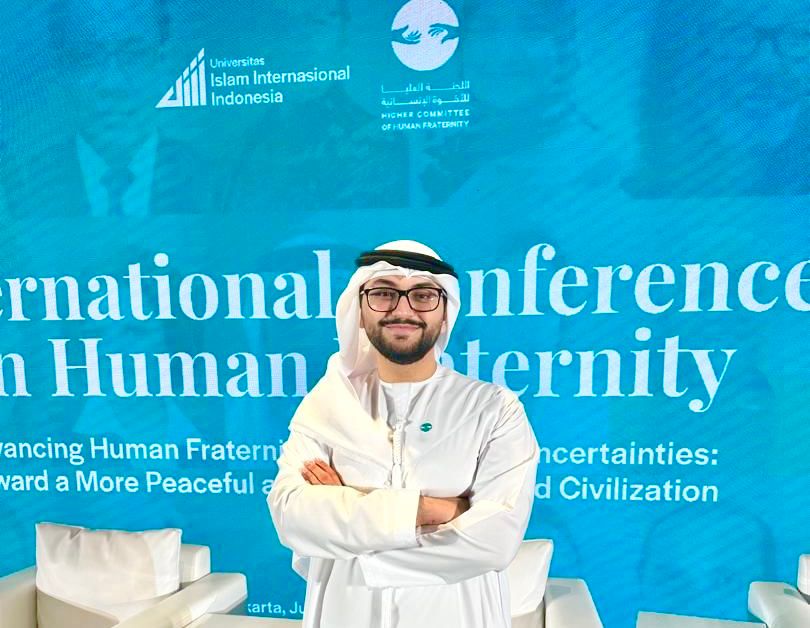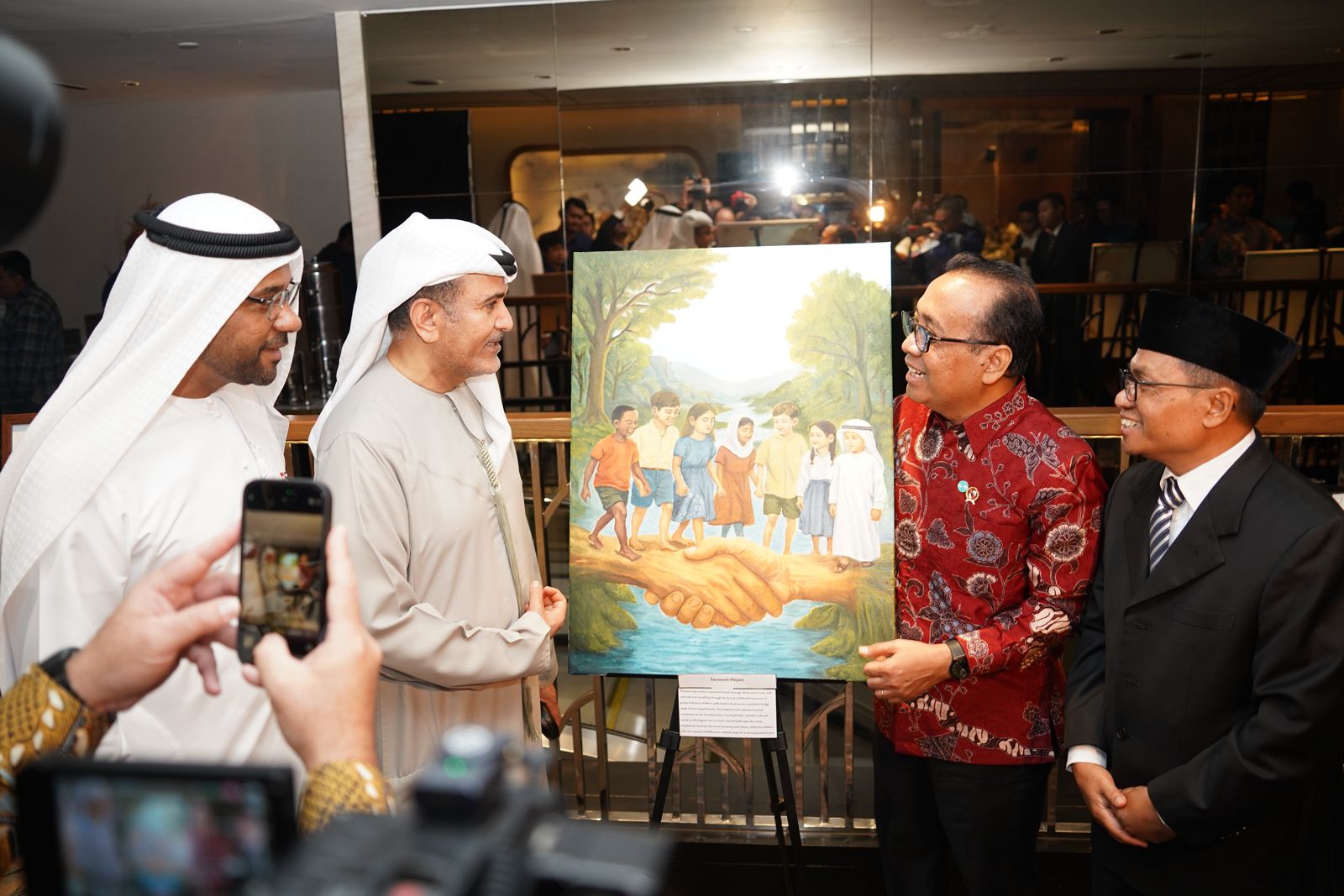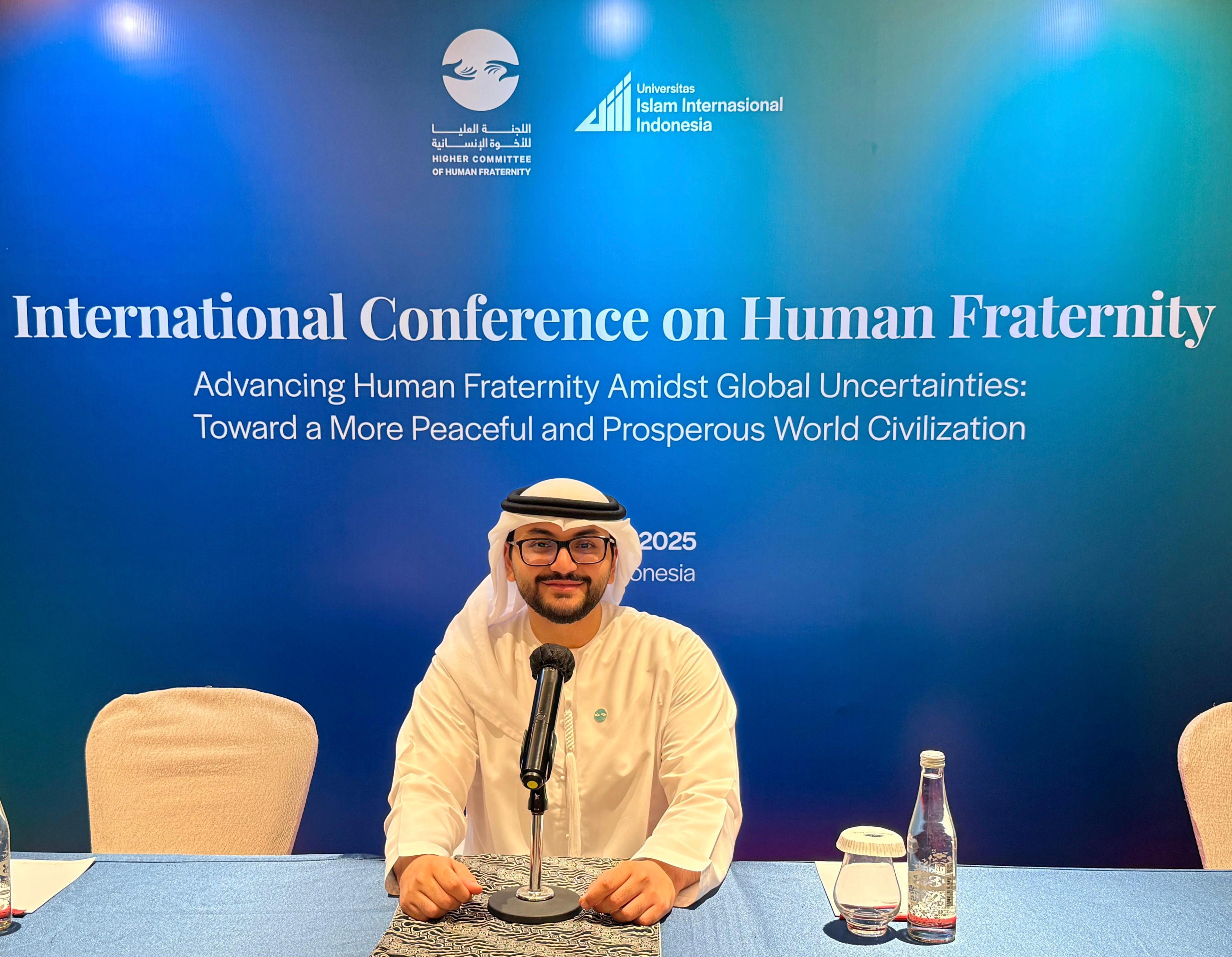More From News
Making Space for Prayer: How the State Shows Up in Everyday Faith
February 6, 2026
August 5, 2025
By Sultan Yousef Al Hosani – Community Outreach Specialist at HCHF

Across Asia and beyond, young people are rising with conviction. Far from disengaged, they are leaning into the challenges of our time with ideas, energy, and a shared hope for a more just world. They are not simply preparing for the future. They are shaping the present.
But too often, youth are invited into decision-making spaces only as a symbolic presence. Their engagement is applauded, yet seldom anchored in real influence. This is no longer tenable. The global crises we face such as climate change, conflict, and inequality demand leadership that is courageous, inclusive, and unafraid to challenge broken systems. Young people offer precisely that. When they are treated not as beneficiaries but as equal stakeholders, bold and transformative solutions begin to emerge.
Human fraternity calls for all people to share equal dignity and a common destiny. This is more than a philosophical ideal. It is a responsibility, one that demands institutions rise above narrow interests and invest in the moral clarity youth bring. Their idealism is not a weakness to be outgrown. It is a strength the world can no longer afford to overlook.

This was brought into sharp focus at the recent International Conference on Human Fraternity, held in Jakarta and co-hosted by the Higher Committee of Human Fraternity and the Indonesian International Islamic University (UIII) from July 29 to July 30, 2025. The event brought together scholars, religious leaders, and policymakers, but most notably, it made deliberate space for youth voices. University students were not passive observers but active contributors. Their questions, ideas, and lived experiences shaped the conversation at every turn.
In doing so, the conference offered more than dialogue, it sent a signal. When young people are not only seen but heard, not only welcomed but empowered, the result is a deeper, more meaningful approach to peacebuilding and coexistence.
Across Southeast Asia, this approach is urgent. With nearly half the population under the age of 30, the region stands at a demographic crossroads. Tapping into the energy and insight of its youth is not a matter of charity or symbolism; it is a strategic necessity.

Across the United Arab Emirates as well, initiatives rooted in human fraternity are placing young people at the forefront of dialogue, diplomacy, and innovation, from interfaith engagement to global climate action. The UAE’s leadership in convening youth at platforms such as COP28 signals a long-term commitment to empowering the next generation of global citizens.
Young people are already leading across the region and beyond, whether in digital innovation, environmental advocacy, or community rebuilding. What they need is not permission to lead as they are already doing so. What they need is for institutions to catch up.
As the world continues to navigate division and uncertainty, youth offer more than hope. They offer direction. The question is not whether they should lead, but whether the rest have the courage to follow.
Universitas Islam Internasional Indonesia